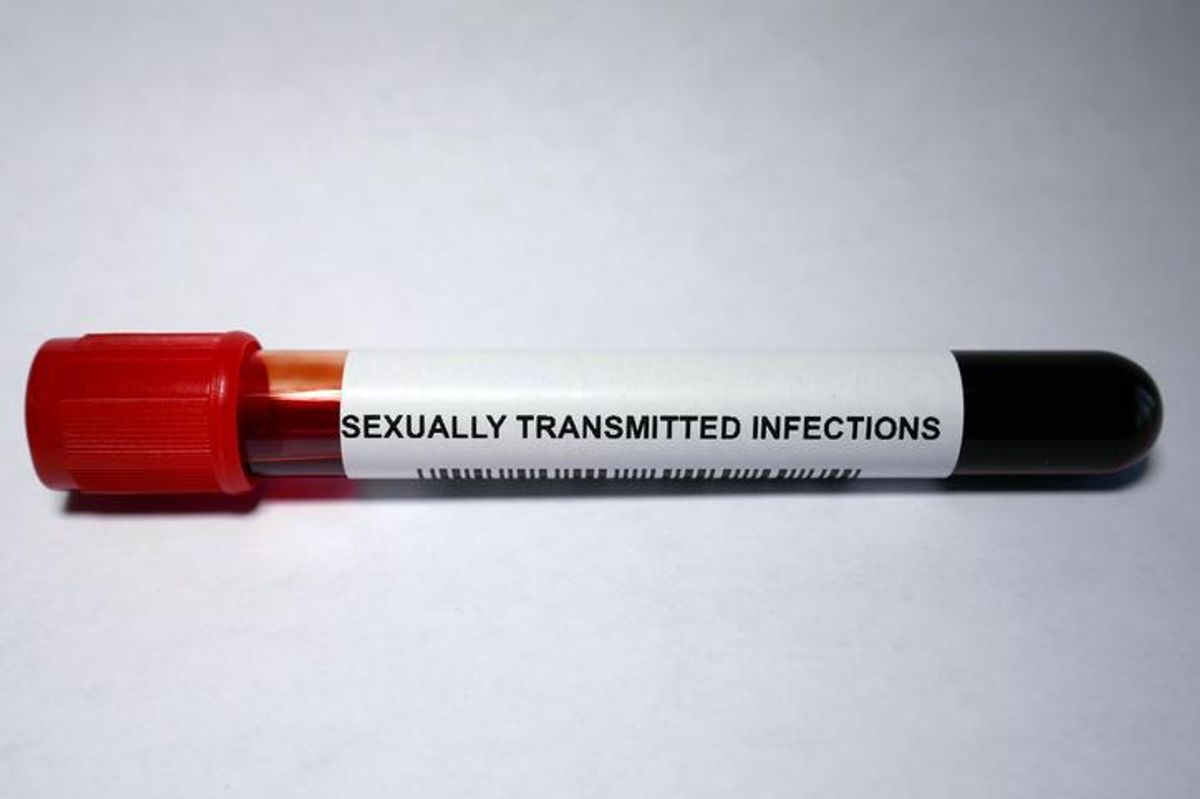About 1 in 5 people in the United States have a sexually transmitted infection (STI). Many STIs don’t cause symptoms, which means that they may go undiagnosed and untreated and can lead to long-term complications, such as infertility and chronic pelvic pain, and may be unknowingly spread to others.
When they do cause symptoms, many STIs often present similarly to each other, yet they still require different treatments. The best way to know if you have an STI is to get tested.
Here are six STIs you should know about.
Chlamydia
Chlamydia is the most frequently reported STI in the United States. Although it affects both men and women, chlamydia can be especially harmful for women because it may cause pelvic inflammatory disease (PID) if left undiagnosed and untreated. Complications from PID can cause long-term pelvic pain and infection in the fallopian tubes. “PID can result in tubal scarring that can lead to infertility and ectopic pregnancy,” said Robyn Faye, M.D., an OB-GYN and member of HealthyWomen’s Women’s Health Advisory Council. Also, pregnant women with chlamydia can give chlamydia to their babies during childbirth.
Chlamydia is considered a “silent” infection because most people who have it show no symptoms. That said, women who do have symptoms may experience:
- Abnormal vaginal discharge
- A burning sensation during urination
The CDC recommends yearly chlamydia screenings for all sexually active women under 25, as well as older women who are at increased risk, such as those with new or multiple partners or a sex partner who has an STI. Chlamydia can be cured with antibiotics and early treatment can prevent lasting damage to your body.
Gonorrhea
Gonorrhea is another STI that is common in both women and men. Undiagnosed and untreated gonorrhea can cause PID and other serious reproductive health problems. A pregnant woman with gonorrhea can pass the condition to her baby during delivery, which can cause blindness or a potentially deadly blood infection in the baby. In rare cases, gonorrhea can also cause sterility in men.
Like chlamydia, gonorrhea often causes no symptoms. If a woman does have symptoms, they may include:
- Pain or burning during urination
- Increased vaginal discharge
- Bleeding/spotting between periods
Testing recommendations for gonorrhea are the same as those for chlamydia. Although gonorrhea can be cured with antibiotics, successful treatment is becoming more difficult because the bacteria that cause it are developing drug resistance.
Syphilis
Syphilis is an STI that occurs in four stages: primary, secondary, latent and tertiary. The main symptom during the primary stage of syphilis is sores in the area where the infection first occurred (around the genitals, anus or mouth).
Symptoms of secondary syphilis may include rash, swollen lymph nodes and fever. There are no symptoms during the latent stage, but the tertiary stage can cause life-threatening damage to the heart, brain and other organs.
During pregnancy, a person with syphilis can spread the infection to the baby, which can cause low birthweight, preterm birth or stillbirth. Pregnant people are typically tested for syphilis at least once.
Although syphilis can be serious if left untreated, it can be cured. Once diagnosed with a blood test, syphilis is treated with antibiotics.
Trichomoniasis
Trichomoniasis, commonly referred to as trich, is the most common STI in the United States that isn’t caused by a virus. Trich is more prevalent than chlamydia and gonorrhea combined. The parasite that causes trich is passed from person to person during sex, typically infecting the lower genital tract (vulva, vagina, cervix or urethra) in women and the urethra (inside of the penis) in men. Infection is more common in women than in men.
Although it affects millions of Americans every year, about 7 in 10 people with trich don’t have symptoms. “Most infected persons have minimal to no symptoms and untreated infections might last for months to years,” Faye said. Women who do have symptoms may experience:
- Irritation or itching around the genitals
- Discomfort while urinating
- Changes in color or thickness of vaginal discharge
- Pain during sex
People with undiagnosed and untreated trich may be more vulnerable to getting or spreading other STIs. Trich can also cause complications during pregnancy; pregnant women with this infection are at greater risk of delivering their babies too early, and babies born to mothers with trich are more likely to be born at a low birthweight (under 5.5 pounds).
The CDC recommends women seeking care for vaginal discharge receive trich testing. Annual screening by your healthcare provider (HCP) might also be considered for people who are at higher risk for infection. Once diagnosed with a lab test, trichomoniasis can be cured with a single dose of prescription antibiotics.
Genital herpes
Genital herpes is an STI caused by herpes simplex virus type 1 (HSV-1) and herpes simplex virus type 2 (HSV-2). Herpes affects more than 1 in 6 people ages 14 to 49 in the United States. Genital herpes is spread through vaginal, anal and oral sex. (HSV-1 often causes oral herpes, which is not the same as genital herpes but can be spread from the mouth to the genitals during oral sex.)
Most people with genital herpes have no symptoms, but some may experience outbreaks of blisters and sores around the genitals (vagina, vulva, penis and anus) or mouth. In addition to being highly contagious, genital herpes can also increase your risk of HIV infection. People with genital herpes who are exposed to HIV in their genitals are two to four times more likely to get HIV.
Herpes can be spread from a mother to her baby during pregnancy or birth, which may result in a potentially fatal infection called neonatal herpes. For this reason, it’s important that pregnant women let their HCP know if they have a history of genital herpes.
Herpes can be diagnosed with a laboratory test. Although there is no cure, it can be managed with medications that may prevent or shorten outbreaks.
Mycoplasma genitalium (M. gen)
Mycoplasma genitalium, also referred to as M. gen, is a type of bacteria that can cause an STI. M. gen often causes no symptoms, but when symptoms do occur, they’re similar to the symptoms of STIs like chlamydia, gonorrhea and trichomoniasis.
Women with recurrent cervicitis (cervical inflammation that lasts even if it’s been treated) and pelvic inflammatory disease should be tested for M. gen. Men with recurrent urethra infections should be tested for M. gen as well.
The importance of sexually transmitted infection testing for women
Faye says it’s important for women in particular to get regular STI tests because so many of these infections can affect fertility and pregnancy outcomes. If a woman doesn’t experience symptoms, she might not know she has an STI until she has difficulty conceiving. Regular testing can help catch these infections before they do serious, permanent damage.
Don’t be afraid to ask your HCP about STI testing if they don’t bring it up. If you’re worried about cost, some clinics offer free or low-cost STI testing based on your income.
This resource was created with support from Hologic.
- You Can Test Yourself for an STI at Home — but Should You? ›
- Sexually Transmitted Infections 2023 - HealthyWomen ›
- You’re Never Too Old to Get an STI ›
- Sexually Transmitted Infections (STIs) and Antimicrobial Resistance ›
- Is It a Yeast Infection or Something Else? - HealthyWomen ›
- Sexually Transmitted Infections Survey - HealthyWomen ›







